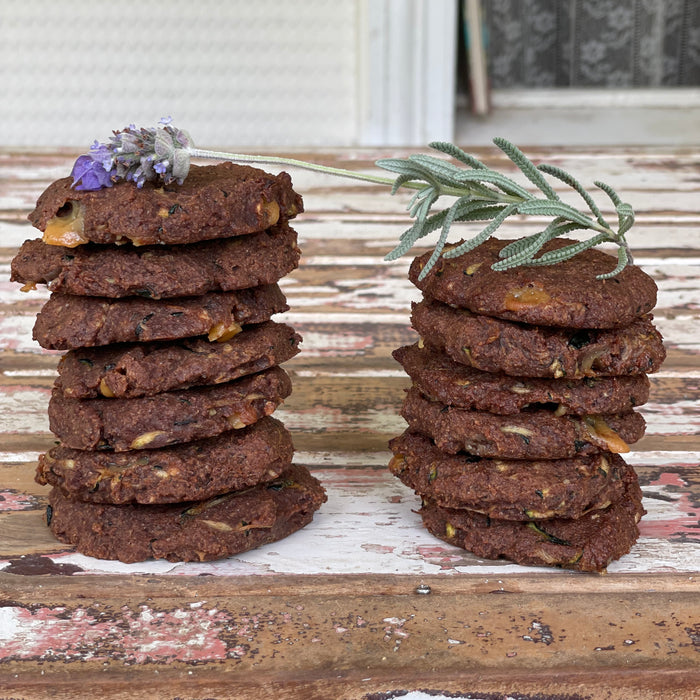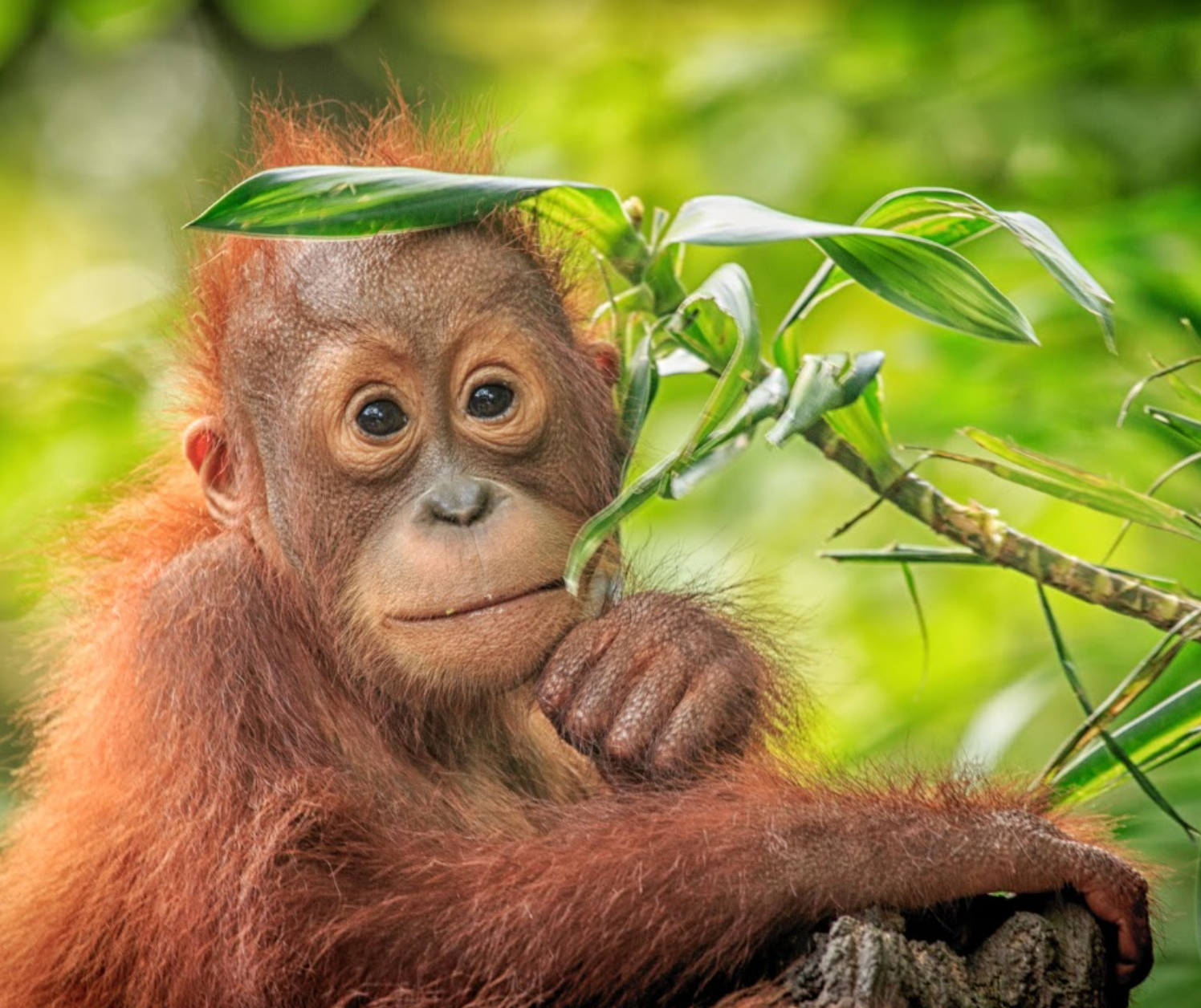Fudgy Chocolate Zucchini Cookie


For Palm Oil Awareness Month in August, we were looking at the prevalence of palm oil in everyday food, personal care products, skincare, makeup, liquid soaps, shampoos and conditioners as well as household cleaning products. In particular, we focused on the many ingredients that are derived from palm oil and disguised in these products under over 200 different names.
Unfortunately palm derived ingredients can sneak into many different products with names like vegetable oil, glycerine, glycerol, sodium lauryl stearate, decyl glucoside, cetearyl stearate, cetyl alcohol and glyceryl stearate, just to name a few. See this LINK for a comprehensive list of these names.
While these names obscure the source, there are some clues such as ingredients that contain the word ‘palm’ (ie. palmitate or sodium palmate) as well as some key prefixes and letter combinations to help identify palm derived ingredients. An example of a typical palm oil derivative is Polyethylene Glycol, with components poly + ethyl + glyc. Other palm ingredients contain the prefixes palm*, cetyl*. ethyl*. glyc*, laur* and stear* in their name. Follow this LINK to see the many letter components and combinations that are commonly associated with palm derived ingredients.
Palm oil can also be hidden in products like biscuits, infant and toddler formula, crackers and breads under the name of “vegetable oil”. Since 2014 the EU law on food information to consumers (known as FIC) has ensured that any food items containing palm oil must be labelled as such. Unfortunately, Australian law does not require it to be labelled as an ingredient, making it difficult for consumers to know whether there is any palm oil in a product. However, there are no laws anywhere in the world that regulate the labelling of palm derived ingredients, so it is important to know and recognise these alternative names and ask the supplier what they are derived from. Sometimes ingredients with the same names can be derived from coconut or another source so it is always good to ask the question.
Palm oil is a type of vegetable oil derived from the palm fruit, grown on the African oil palm tree or the American oil palm tree and flourishes in tropical environments. About 90% of the world’s palm oil is currently produced in, and exported from Indonesia and Malaysia, though in most cases, it has not been cultivated sustainably. Due to its unique properties and versatility as both an edible and non-edible oil, palm oil has become a very popular oil for food and cosmetics manufacturers and more recently, considered for use as a potential biofuel. However, the current uses of palm oil and escalating global demand for palm oil comes at a great cost.
In order to grow and produce palm oil, huge areas of rainforest are indiscriminately slashed and burned each year to clear the way for wide scale oil palm plantations and many orangutans, native species and other wildlife are burned, killed or left without homes and food in the process. Sadly, the conversion of rainforests and orangutan habitat to palm oil plantations has been described as the single greatest threat to the survival of the orangutan and increasing demand for palm oil also threatens the rights and interests of forest dwelling communities in these areas.
At Santos Organics we only stock products containing certified organic palm oil from Daabon Plantation in Colombia (such as Britt’s Organics or Holle Formulas) or palm derived ingredients which can be traced straight back to the source. For example, Eco Store sources their palm derived ingredients from their own RSPO certified supply chain in Papua New Guinea and Dr Bronner’s sources their palm oil from their own plantation in Ghana, Africa.
When we carried out our palm oil audit to receive our Accreditation with Palm Oil Investigations in 2019, we discovered that many of our personal care and cleaning range in particular contained untraceable palm derived ingredients. As a result, many of our long term suppliers reformulated their products to remove and replace these ingredients and we also came across some amazing brands and product manufacturers who had worked hard to ensure that their products are truly palm free.
During this time, we also introduced the beautiful Retreatment Botanics to our skincare range as the first spa quality, premium range in the world to ever be 100% Palm Oil Free and certified with Orangutan Alliance. For more information on our Retreatment Botanicals product special for this Palm Oil Awareness month and an interview with Trudi, the co-founder, about their palm oil journey and the formulation of their products, follow this LINK. To find our Retreatment Botanics range on-line, click HERE.
This month we are also featuring SunButter sunscreen and zinc products, being our first vegan sunscreen and also the world’s first certified palm free sunscreen!
Thank you for continuing to support all of our many wonderful palm oil free products and traceable palm oil suppliers in our Santos Organics Stores and online and for joining us in taking these small but significant steps to identify and spread awareness about palm derived ingredients!